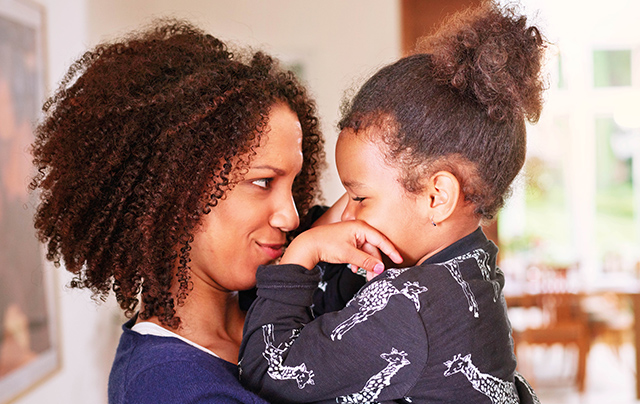Talking to kids about COVID-19
This may be an upsetting time for children. They may wonder why people are staying home and why they can’t go to school or play with friends. You can help them understand what’s going on and help them feel safe. Here are some tips for how to talk to children about the COVID-19 outbreak.
Give them the facts
Keep the information simple and reassuring. Gear the information to your child’s age. Here are some basics you could share:
- Viruses are germs that can make people sick. Right now, there’s a new virus going around. It’s called COVID-19. That’s short for “coronavirus 2019.”
- This virus is making a lot of people sick. Many of them probably won’t feel too bad. But some people do get very sick. That’s why we need to be careful. We don’t want to get sick, and we don’t want to make other people sick.
- Experts are studying the virus and learning more every day. That’s why things are changing, like whether schools are closed. It may be confusing, but those changes are meant to help us stay safe.
Teach them what they can do
Everyone can help prevent the spread of germs. These are great habits to have all the time. And taking action can help kids feel more in control. Teach your child these things:
Wash your hands with soap and water for at least 20 seconds. Use these 5 steps:
- 1. Wet your hands.
- 2. Use soap.
- 3. Rub your hands together to make suds. While you scrub, sing or hum the “Happy Birthday” song twice.
- 4. Rinse.
- 5. Dry.
Wash your hands after you use the bathroom, before you eat or make food, and after you cough, sneeze, or blow your nose.
Cough and sneeze into your elbow or a tissue. Put the tissue in the trash right away. Then wash your hands.
Keep your hands away from your eyes, nose, and mouth. That helps keep germs out of your body.
Stay calm
Your child will follow your lead. If you’re calm, your child is more likely to be calm. If you’re anxious, your child may feel that way too. Take good care of yourself and focus on the positive steps you can take to be safe.
Limit how much time your child spends watching TV or on social media. Kids may see or hear things that cause them to worry. The same goes for you: Too much media about the virus may make you feel anxious.
Keep talking and listening
As they adjust to these changes, kids may need more love and attention.
- Make time to listen. Encourage your child to talk about any concerns or fears they have. This gives you a chance to correct rumors or false information they may have heard.
- Let them know you’re available to answer their questions. This can help them feel safe and secure.
© 1995-2020 Healthwise, Incorporated. Healthwise, Healthwise for every health decision, and the Healthwise logo are trademarks of Healthwise, Incorporated. This information does not replace the advice of a doctor. Healthwise, Incorporated, disclaims any warranty or liability for your use of this information.
Learn more about how to take care of your mental health
Choose from a broad range of self-care tools designed to support a healthy state of mind.







